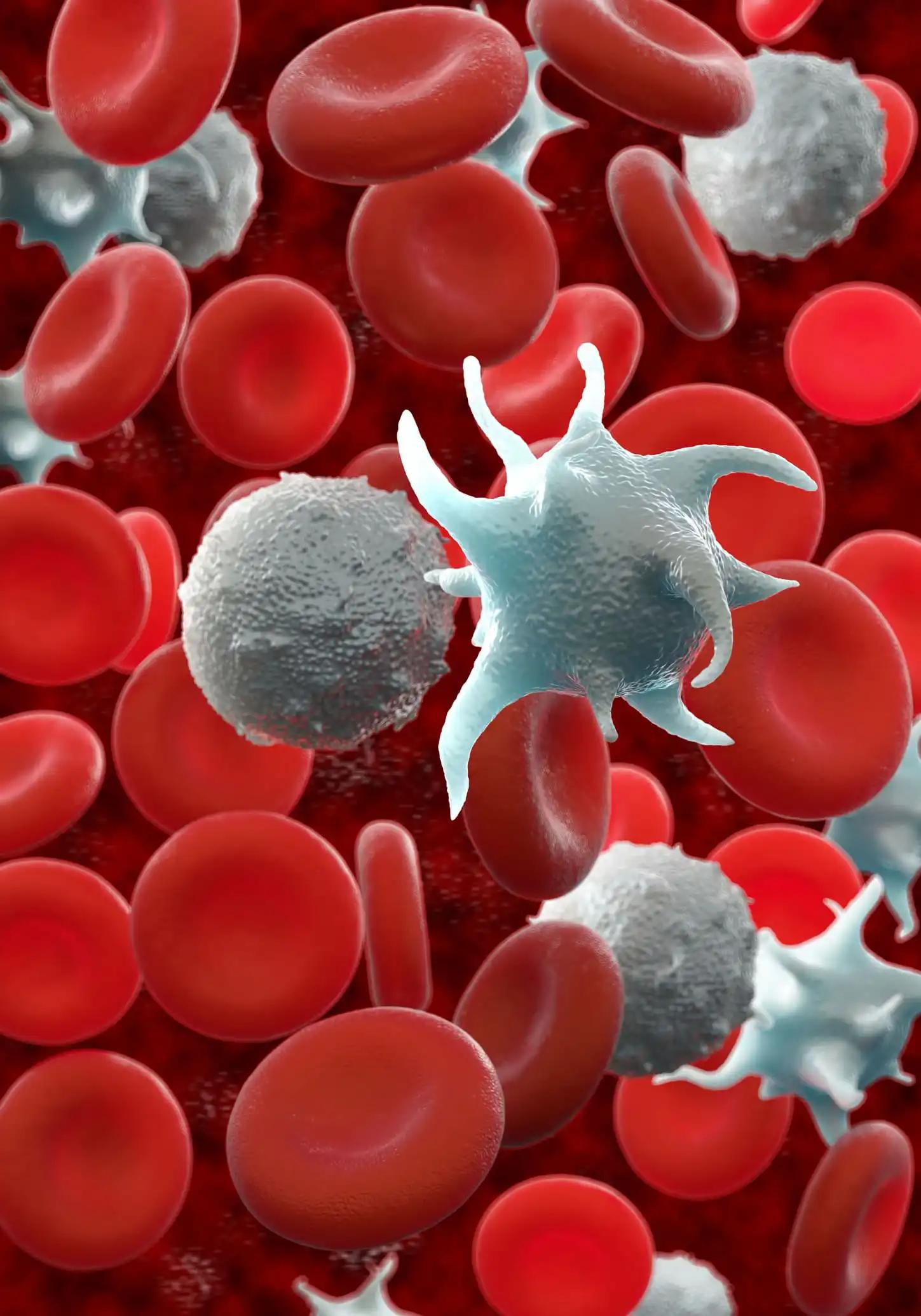KEY TAKEAWAYS
- Assessing the effectiveness of the standard frontline regimen comprising the BTKi ibrutinib in combination with or without the anti-CD20 antibody IO for older adults with CLL.
- The primary endpoint was PFS, and the secondary endpoints included OS, TTD, the incidence of AEs, and MRD negativity.
- The predefined futility boundary was crossed, with an HR of 1.20 in favor of IO. COVID-19 was the leading cause of death in both arms.
Chronic lymphocytic leukemia (CLL) stands as a blood cancer primarily impacting the elderly. Ibrutinib (BTKi) is a conventional therapeutic approach for CLL. However, achieving complete remission or undetectable minimal residual disease (uMRD) is not guaranteed. So, patients often have to take the drug forever. Emerging evidence suggests that ibrutinib with obinutuzumab (IO) and venetoclax (IVO) may lead to successful treatment discontinuation. The study explored whether response-guided discontinuation of ibrutinib in patients receiving IVO improved progression-free survival (PFS) compared with patients receiving IO with indefinite ibrutinib in treatment-naive, older patients with CLL.
In this study, IO was administered in the standard fashion, and in the IVO arm, V was added at C3D1 and continued until C14D28. Following 14 cycles, flow cytometry assessed patients with CT scans and central MRD evaluation. In the IVO arm, uMRD CR patients stopped I; others continued until progression or unacceptable toxicity. Eligible patients were initially ≥70 years, later amended to ≥65. Patients had CrCl ≥ 40 mL/min, bilirubin ≤ 1.5 x ULN, and no other life-limiting intercurrent illness.
Patients were stratified based on the Rai stage and +/- del17p13.1 by FISH, and they were randomized 1:1 to IO: IVO. With 431 evaluable patients, the trial had 90% power to detect a significant PFS improvement using a one-sided log-rank test at a 2.5% type 1 error rate. Data release was approved by the Alliance DSMB (November 4, 2022), following the protocol-defined futility threshold in the second interim analysis. Data locking took place on December 15, 2022.
A total of 465 patients were enrolled in the study between January 4, 2019, and July 15, 2022 (IO: 232, IVO: 233). The median age was 74, with 67% being men. Rai stage 3-4 was observed in 55%, and del17p in 13%. With a median follow-up of 14 months, the progression-free survival (PFS) was 87.5% for IO compared to 85% for IVO. Events occurred in 29 patients on IO (4 progressions, 23 deaths, 2 started other therapy) and 35 on IVO (7 passages, 28 deaths). The predefined futility boundary was crossed, showing a hazard ratio (HR) 1.20 (95% CI: 0.73-1.97), favoring IO. COVID-19 was the leading cause of death in both arms (11 COVID-19 deaths on IO, 19 on IVO), with 13 and 11 additional casualties from other causes, respectively. Censoring patients with COVID-19-related deaths, PFS HR was 0.82 (95% CI: 0.44-1.53) favoring IVO. Grade 3+ toxicity and discontinuation in the first year of therapy were similar between arms.
While IVO did not outperform IO in PFS for treatment-naive older CLL patients, long-term follow-up may reveal the benefits of IVO, particularly in MRD and therapy discontinuation.
Source: https://ascopubs.org/doi/10.1200/JCO.2023.41.16_suppl.7500
Clinical Trial: https://www.clinicaltrials.gov/study/NCT03737981
Jennifer Ann Woyach, Jun Yin, Jennifer R. Brown, Shira Dinner, Gerard Lozanski, Richard F. Little, Cecelia Miller, Vijay Kumar Damarla, Steve E. Coutre, Wei Ding, Brian T Hill, Gabriela Perez Burbano, Amy S. Ruppert, Anna K. M. Wall, Diane Feldman, Elie G. Dib, Harry Paul Erba, Mark Robert Litzow, Richard M. Stone, John C. Byrd. DOI 10.1200/JCO.2023.41.16_suppl.7500, J Clin Oncol 41, 2023 (suppl 16; abstr 7500)



